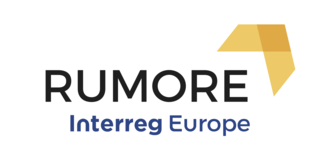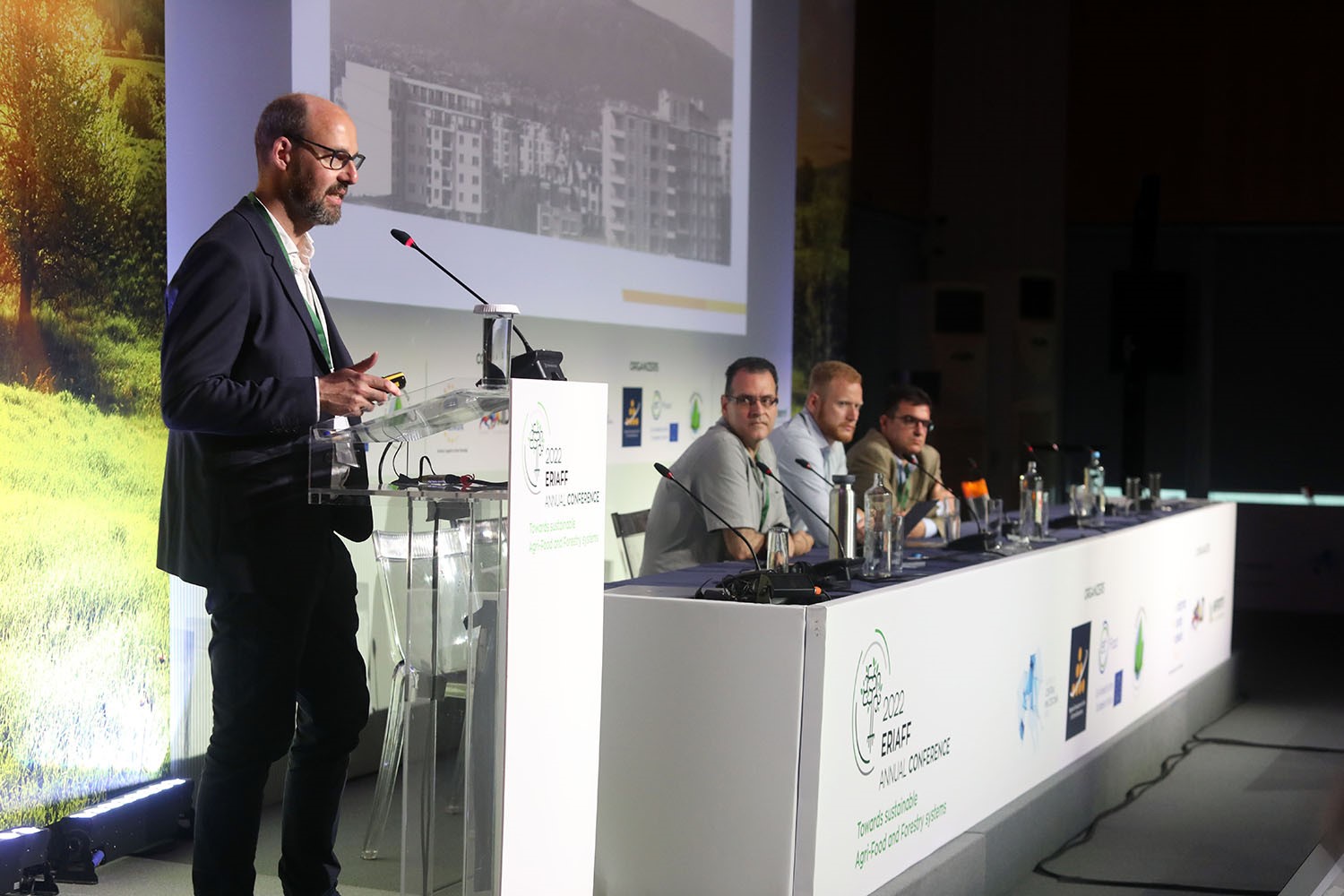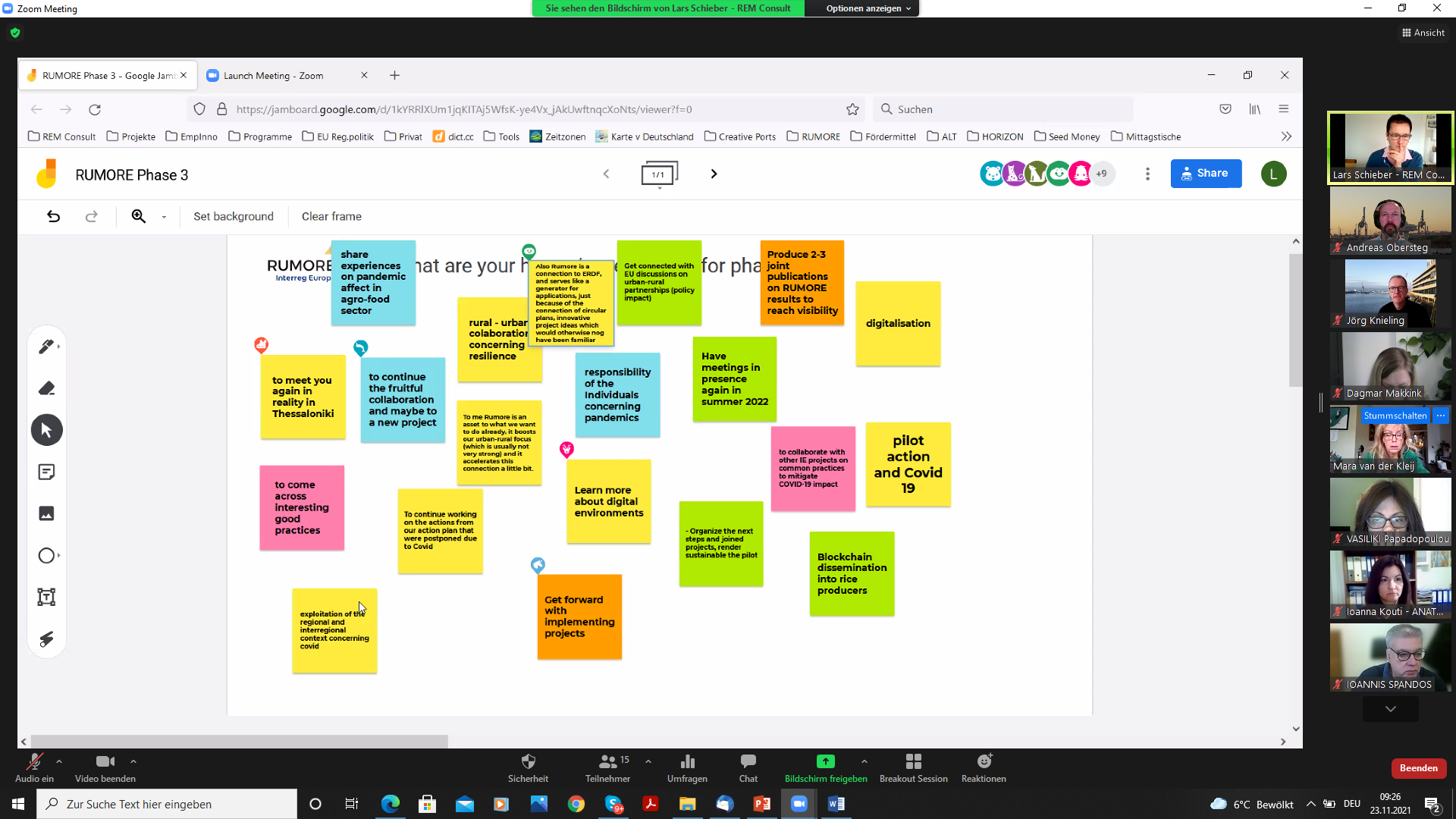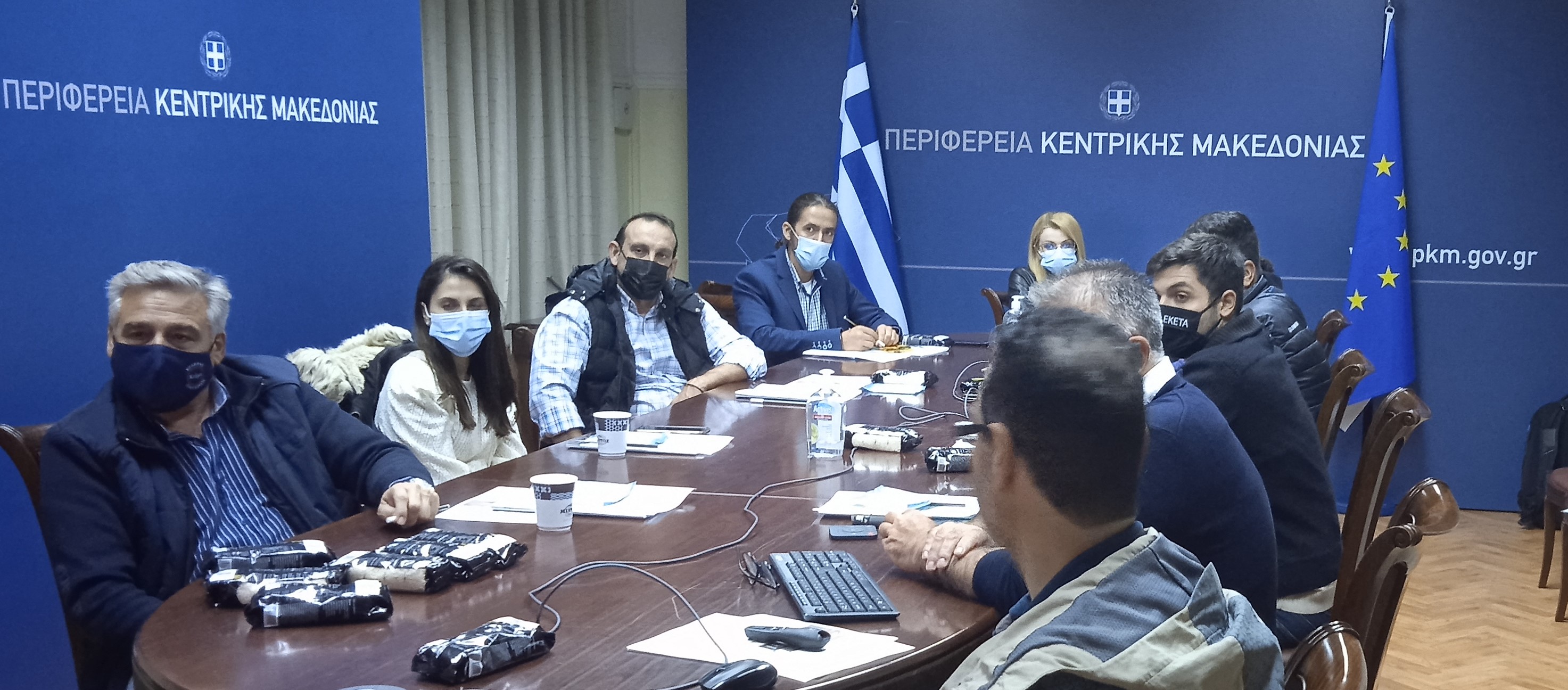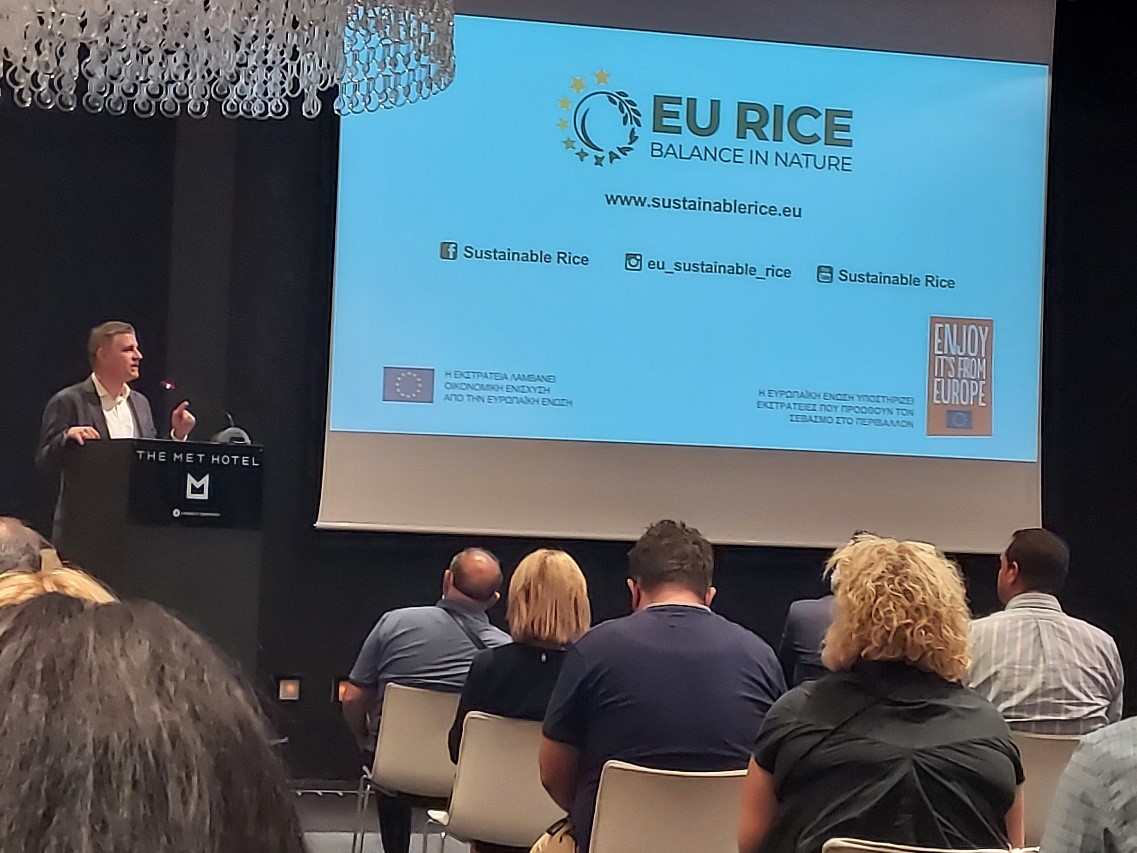What potentials and challenges exist in the improvement of innovation processes in Central Macedonia?
RUMORE project partners came together on 19th – 20th March 2019 in Thessaloniki to learn about Central Macedonia’s regional innovation system. The meeting was organized and hosted by ANATOLIKI S.A. and the Regional Development Fund of Central Macedonia on behalf of the Region of Central Macedonia. During the meeting, representatives of the regional authority, local companies and research institutions showcased how the Region works to create competitive advantages for SMEs in urban and rural areas. A particular focus was placed on the support of SMEs in the agricultural and food sector; a main priority field in the RIS3 Strategy of Central Macedonia.
The Region of Central Macedonia follows a multi-faceted approach for improvement of agri-food value chains with its territory – from the optimization of production and marketing processes by means of new technological developments to the preservation of traditional products and Greek cuisine. This was illustrated by a number of current good practice projects such as the “Macedonia Food Festival”. The Region has a good tradition in local food production; yet it is characterized by small-sized SMEs with limited capacity to innovate, cooperate and implement new ideas. Central Macedonia furthermore hosts some of the largest universities and educational institutions in Greece; however, experiences from recent years show that research activities have not always matched local needs. As a result, the practical application potential of research outputs remains limited and underused.
To support interregional cooperation and channel investments, the Region of Central Macedonia is currently establishing a new coordination mechanism within its Regional Operation Programme 2014-2020, called “One Stop Liaison Office”. The mechanism seeks to boost competitiveness of local SMEs and foster the initiation of new cooperation initiatives with research institutes. In a more general sense, the mechanism would support the monitoring and evaluation of the RIS3 strategy of the Region.
Central Macedonia’s effort to promote interregional collaboration builds upon a number of existing cooperation activities and initiatives in the agricultural and food sector. The RUMORE project partners had the possibility to visit and learn about the following good practices:
- Koukakis Farm: a dynamic family run company, which evolved from a small family enterprise into one of the leading producers of milk and dairy products in the Region of Central Macedonia. The Farm is distinguished by its innovation approaches in the production, distribution and marketing of dairy products. To guarantee high quality, the Farm relies on new technologies in the production units and through close collaboration with local farmers.
- American Farm School: a premier institution in Thessaloniki for education and research in agriculture, food systems, environmental studies and life sciences. The Farm School functions as a living laboratory, which brings together education and practical farming activities. Through a number of innovative programs for education, research and entrepreneurship, the School strengthens the linkages between urban and rural activities in the Region.
- Women's Agricultural Cooperative of Agios Antonios: a first of its kind women's cooperative in Thessaloniki. The Cooperative employs women from rural areas with the aim to strengthen their families’ income and the development of the villages. It produces and markets traditional handmade high quality products and therefore preserves cultural heritage and the agri-food traditions in the Region.
- Institute of Applied Biosciences/ Centre for Research and Technology Hellas: a leading research center in the agri-food sector, which works on omics applications, molecular biotechnology and ‘breeding by design’ approaches to achieve high quality agri-food and non-food products. The center participates in steering scientific and policy-making groups towards sustainable development of value chains both locally and across the Mediterranean Region.
